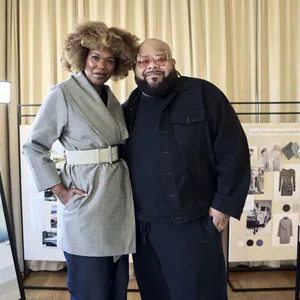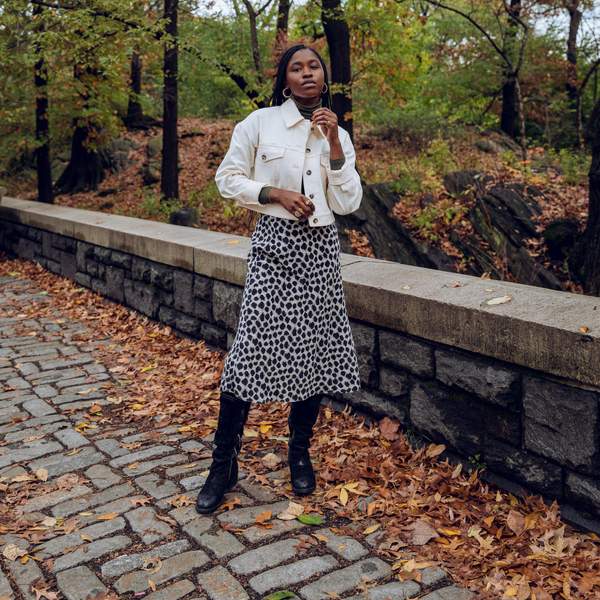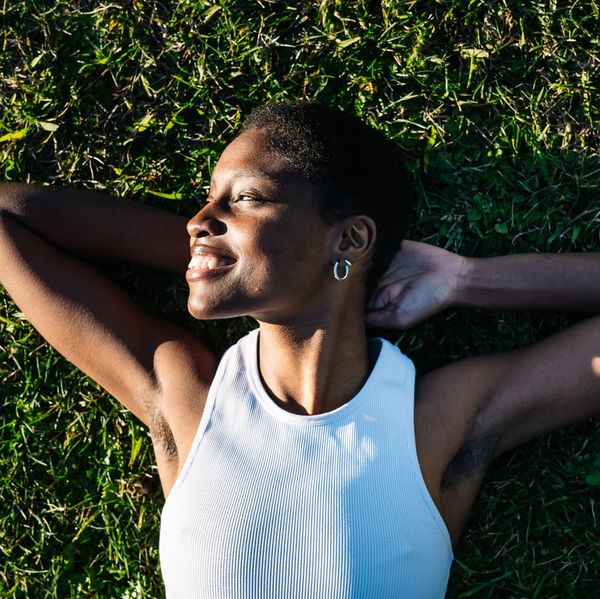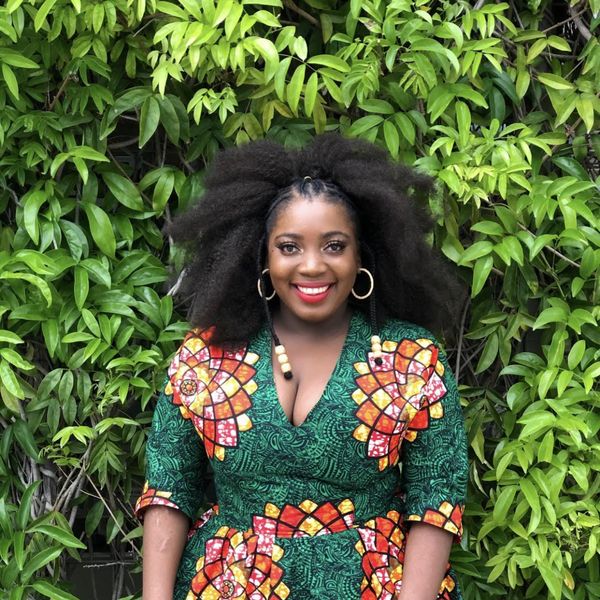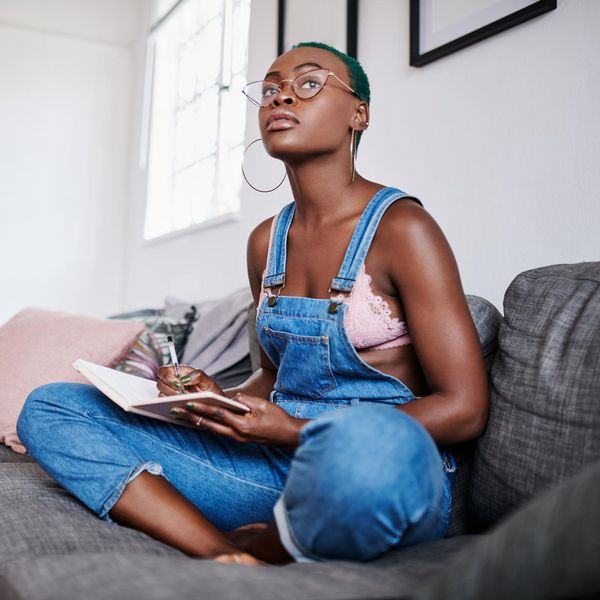Affirmations have the power to change everything around you if you just believe. With your words, you can immediately tap into a new belief system that can shift your life like never before. Creative director J. Ivory is a self-proclaimed Affirmations Queen who is known for being a visual storyteller and manifesting the life God has for her. In doing so, she has learned there is so much power in words and even more so in spoken words.
“The words we speak can either hurt us or heal us. I believe that your words are the most powerful weapon that our humanity has. Believe it or not, you are the very result of the words you have spoken over your life. Positive words have the power to change your life," she told xoNecole.
When it comes to manifesting your destiny, J. Ivory proclaims that you should think of affirmations as the pathway in which you want your actions to go. “You manifest affirmations best by doing the work and some of it is really hard work. I often tell my clients, 'If you see it, you can have it.' Visualize and write out how you see your highest/best self and start showing up as that person every day. Get to know the person you want to become. Be specific. What do they eat? How do they dress?” she asked. J. Ivory went on to say, “What books are they reading? If the person you want to become is financially free and wealthy, and that’s what you are affirming, then you need to ask yourself, 'How does my current spending habits and mindset align with the wealthy and financially-free person I want to become? What are some changes I can make today that I can be consistent at that will get me closer to my desired outcome?'"
Above all, she wanted to make sure folks realize that affirming the life you deserve calls for you to be unafraid of the specifics. “Sometimes, I find that people think that affirmations are some type of magic trick.” One thing to take away from J. Ivory's knowledge about affirmations is the importance of your actions aligning with your words.
In 2023, we want to be intentional about how we speak in every way. Since being about the action is a part of the beauty of manifesting affirmations, we rounded up 23 women to share the biggest affirmation they are speaking over themselves this year. Here’s what they had to say.
Tasha McCaskiel, Social Media Strategist and Creator of Black Girls in Media
@tashjmackk
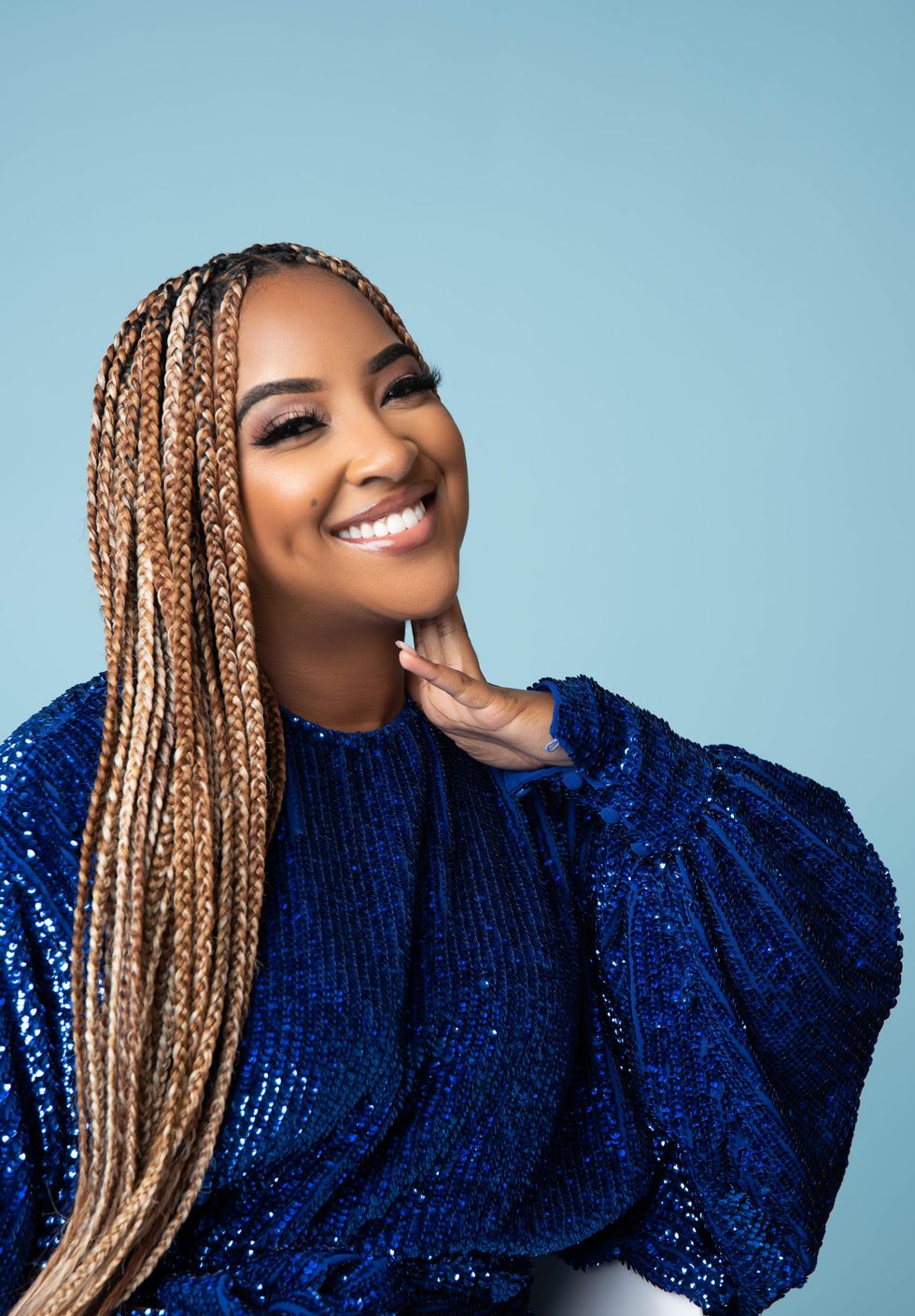
Courtesy of Tasha McCaskiel
"I affirm a new and long-lasting love because 2022 was such a self-love year for me, and it was great. I also thrived professionally. [This] year I affirm room for a lifelong romantic partner! God has plans to prosper me, not to harm."
Terrica M. Wright, Founder and Co-Owner of The High Esteem Society
@terricatalks
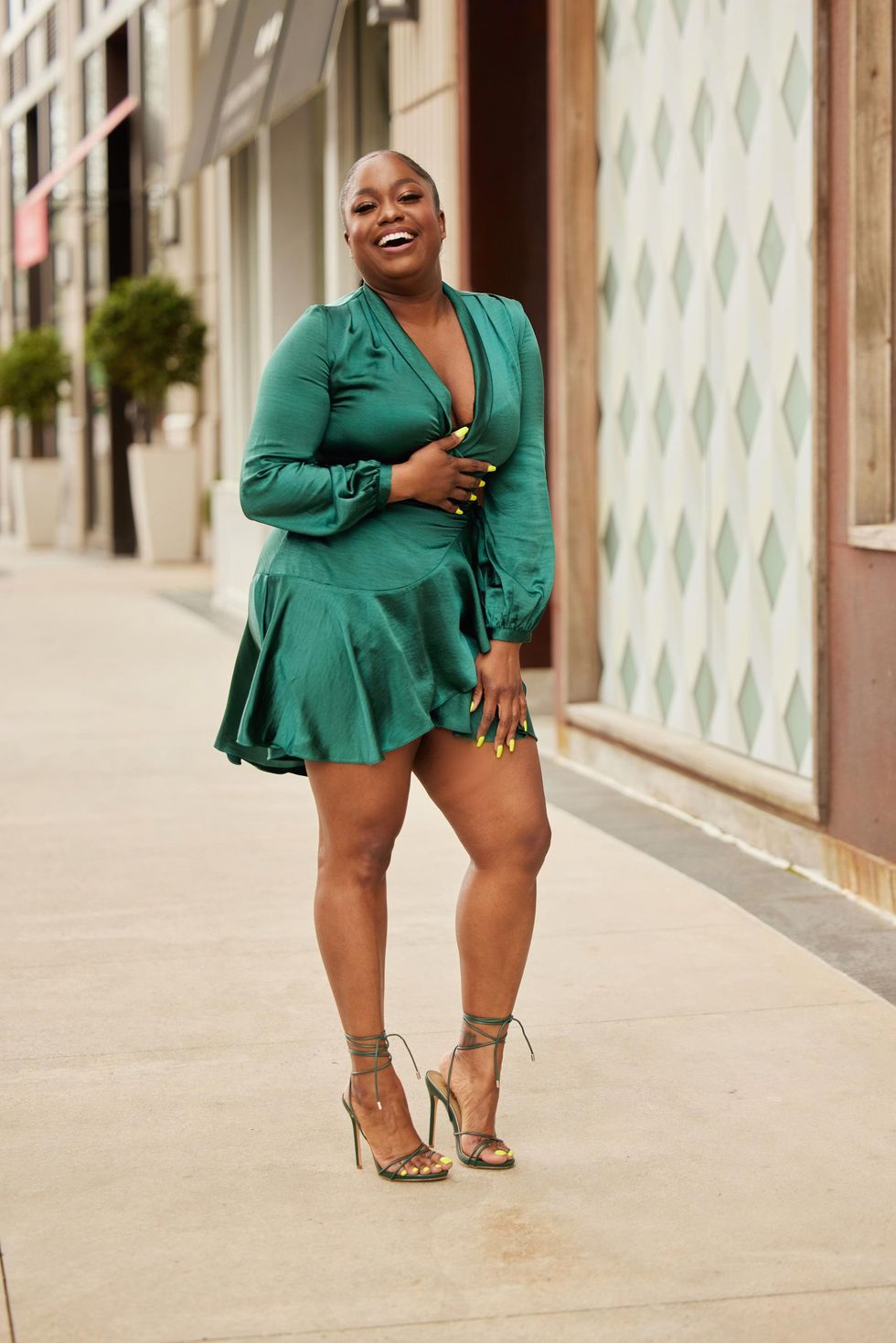
Courtesy of Terrica M. Wright
"I give myself permission to be all that God has called me to be. An affirmation that got me through 2022 was 'Know who you are and whose you are.'"
Kimberlee Ward, CEO and Founder of Eternal Balance Candles
@theekward
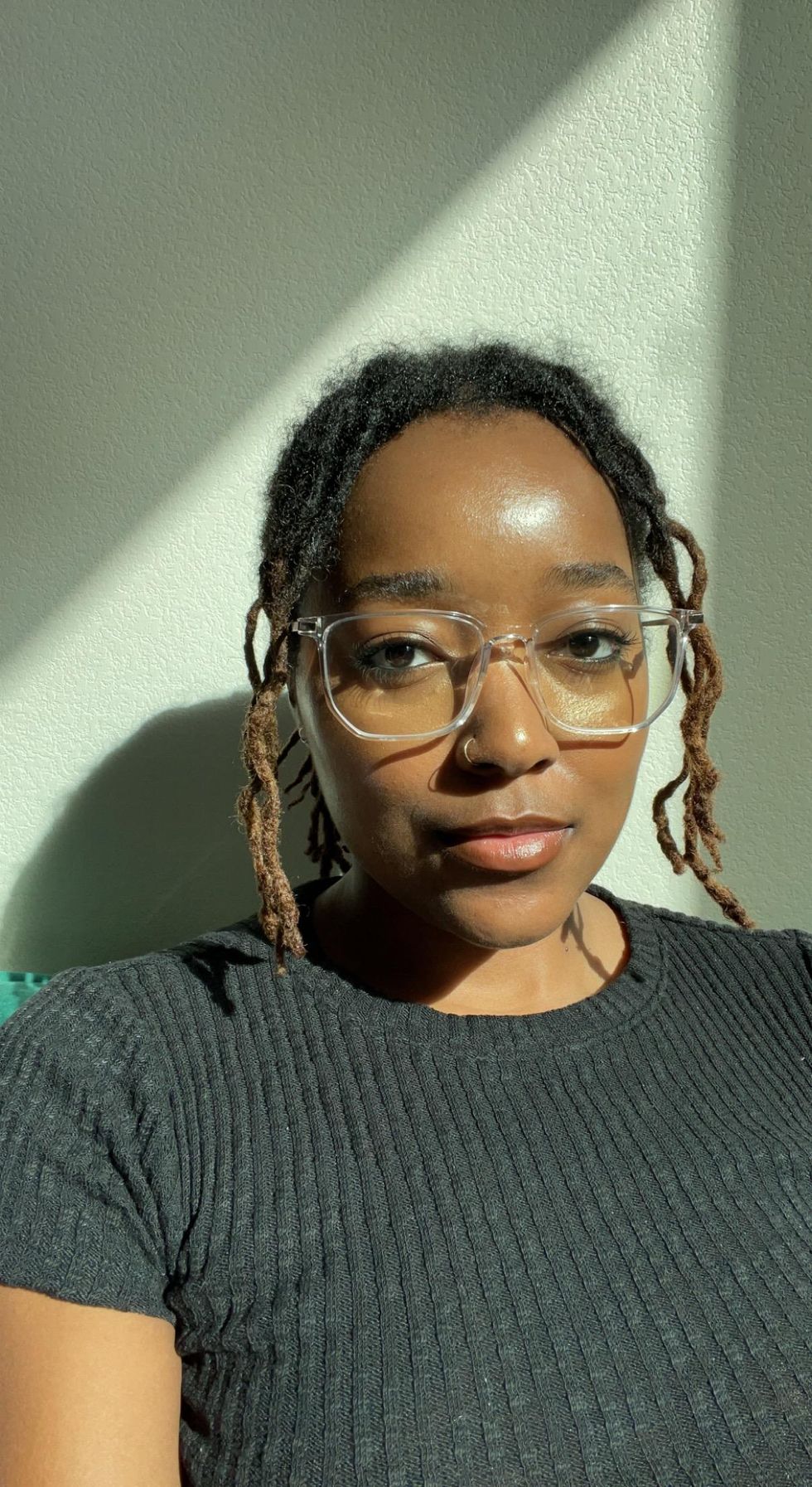
Courtesy of Kimberlee Ward
"I am enough and worthy of the life I desire. I am speaking this affirmation over 2023 because this is the year to not only sit in a place of healing but recognize I deserve to enjoy and revel in what is on the other side of that healing. I want my awareness of what I know to be possible to expand toward the life I desire. I do not intend to act small or be small in my wants.
"As a 31-year-old Black woman, I deserve to have the luxuries of life and for my business, Eternal Balance Candles to become a six-figure business. I am speaking this affirmation over my life in 2023 to let myself know that I am enough and I can be in a place where I am thriving and not just surviving. I want myself to know that the survival mode I have been in served a purpose, to thank my physical body and mind for the changes it made through the hardships, and for me to know now is the time to shine being authentically me."
Mercedes Matthews, Meditation Instructor
@mercedesm7
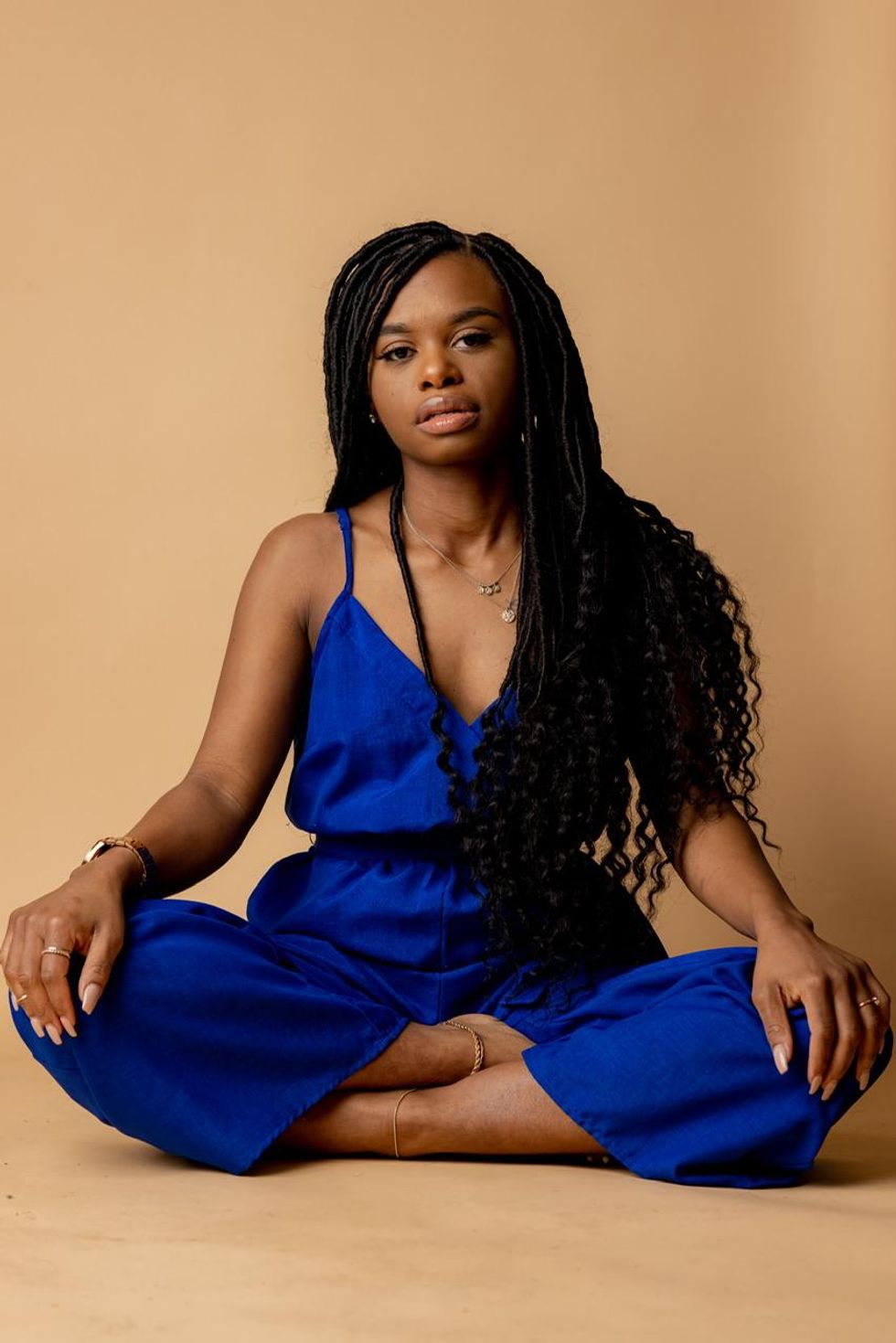
Courtesy of Mercedes Matthews
“'It’s not what it cost, it’s what it’s worth.' This is my affirmation for 2023 because it reminds me to get comfortable making investments in my life that bring ease. The affirmation that got me through 2022 is 'Here I am, so here I’ll be.' A gentle reminder to be completely present in every moment possible."
Rechelle Dennis, ESSENCE Girls United Lead
@YungChelly
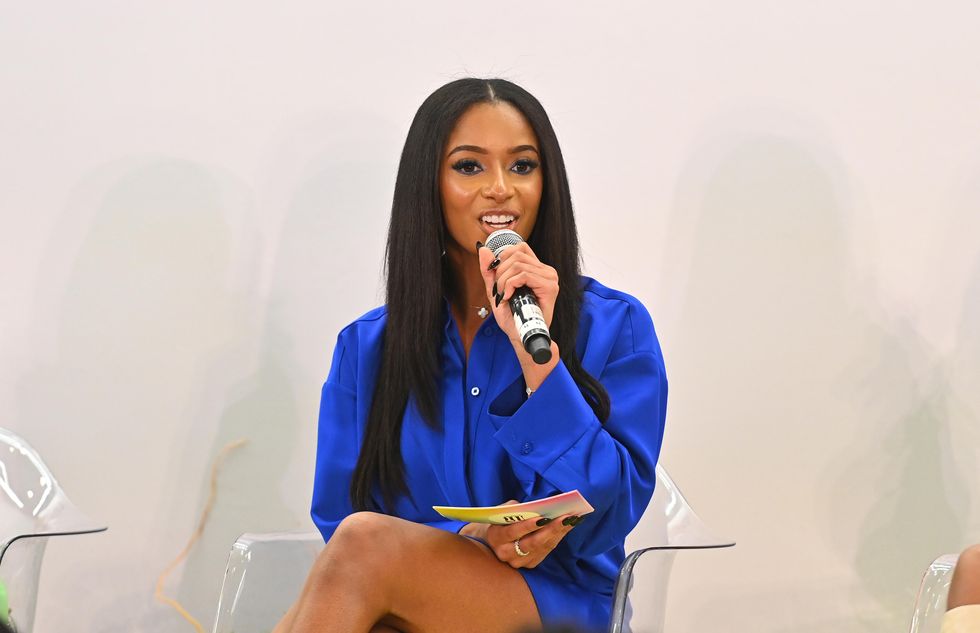
Courtesy of Rechelle Dennis
"'Take more fucking risks and love being uncomfortable!' It is important not to fear the power that resides within you. Find allies and people who can help you harvest your talents. How can you grow to the best that you can be without optimistically facing the unknown? 'Believe in yourself' is the corniest phrase known to mankind but it really got me through 2022. If you don’t believe in yourself and who you are, you can’t expect anyone else to. Everything starts within."
Kimberly Ndubizu, Founder and Host, Rich Little Brokegirls
@sliimkim
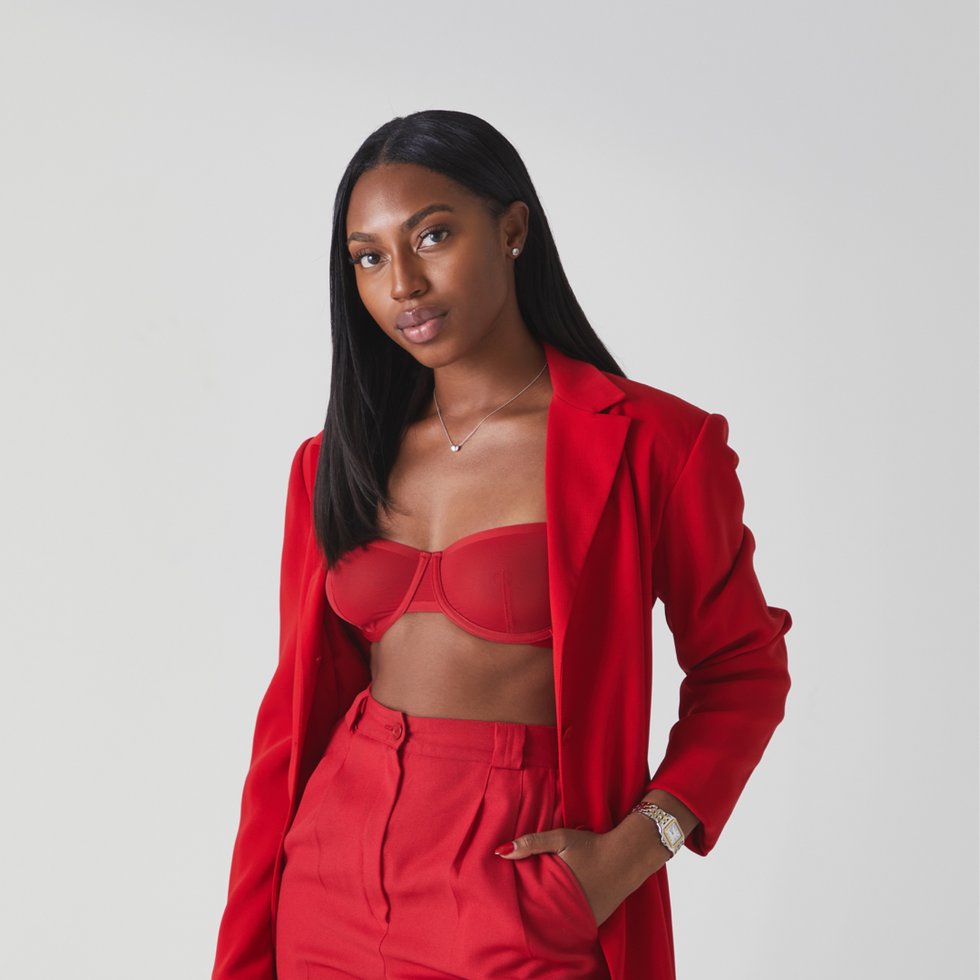
Courtesy of Kimberly Ndubizu
"'There are no limits to what women can achieve because there are no bounds to what women can dream.' For years women have slept the wildest dreams— today we are rested, determined, and will stop at nothing to see them true. Never doubt your intuition, it knows exactly where you are meant to be."
Rocquelle Porch, Podcaster of Black Style Anecdotes and Content Creator
@considermelovely
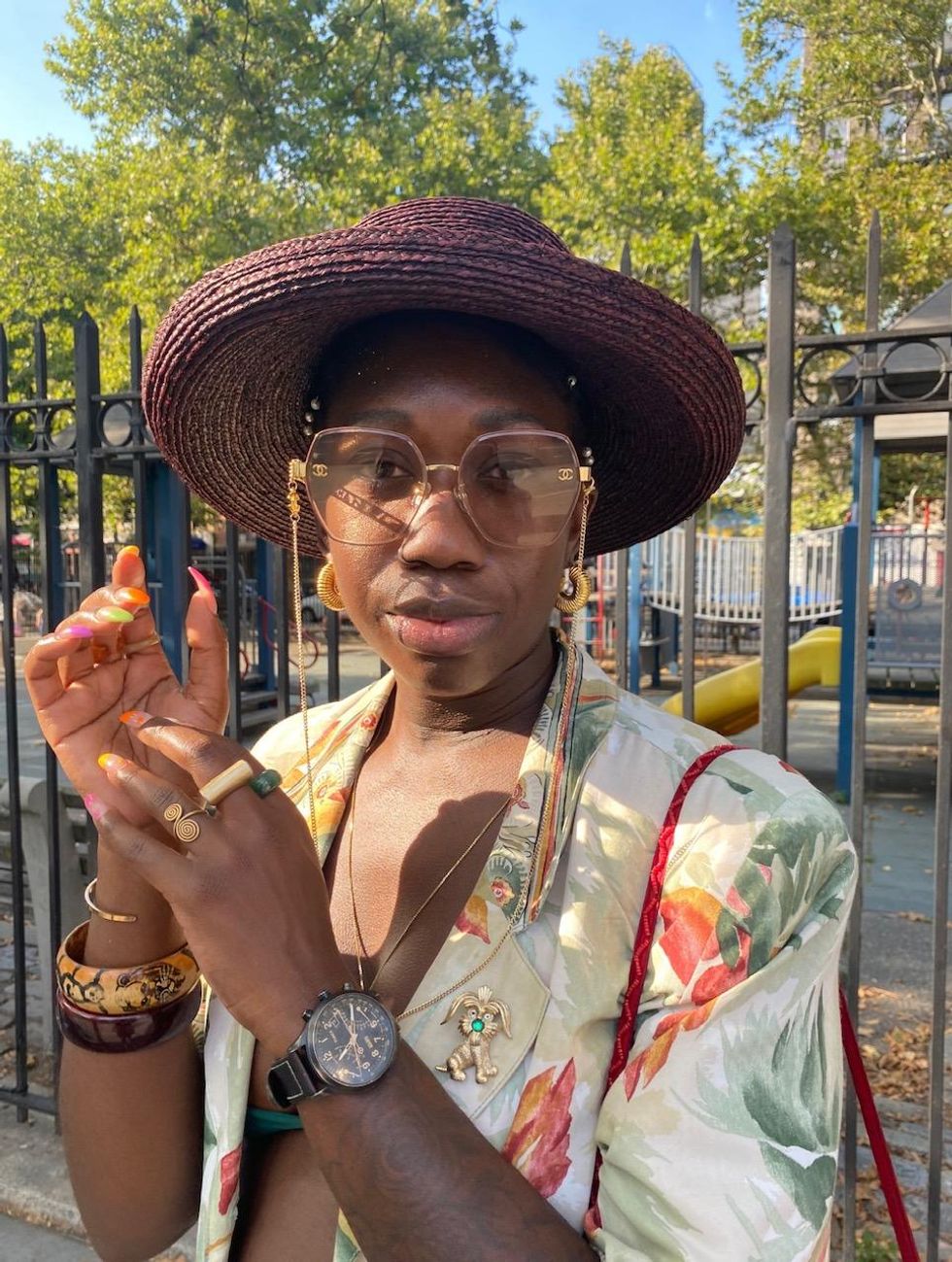
Courtesy of Rocquelle Porch
"'I can do hard things!' There are some things I want to accomplish in 2023, financially, professionally, and creatively. Doing so won’t be easy…requiring some sacrifice and grit, so I will be reminding myself of this daily, as I strive to reach my goals. The grass is green wherever I am."
Chasity Hart, Theater Teacher, Singer and Actress
@Iamchasityhart
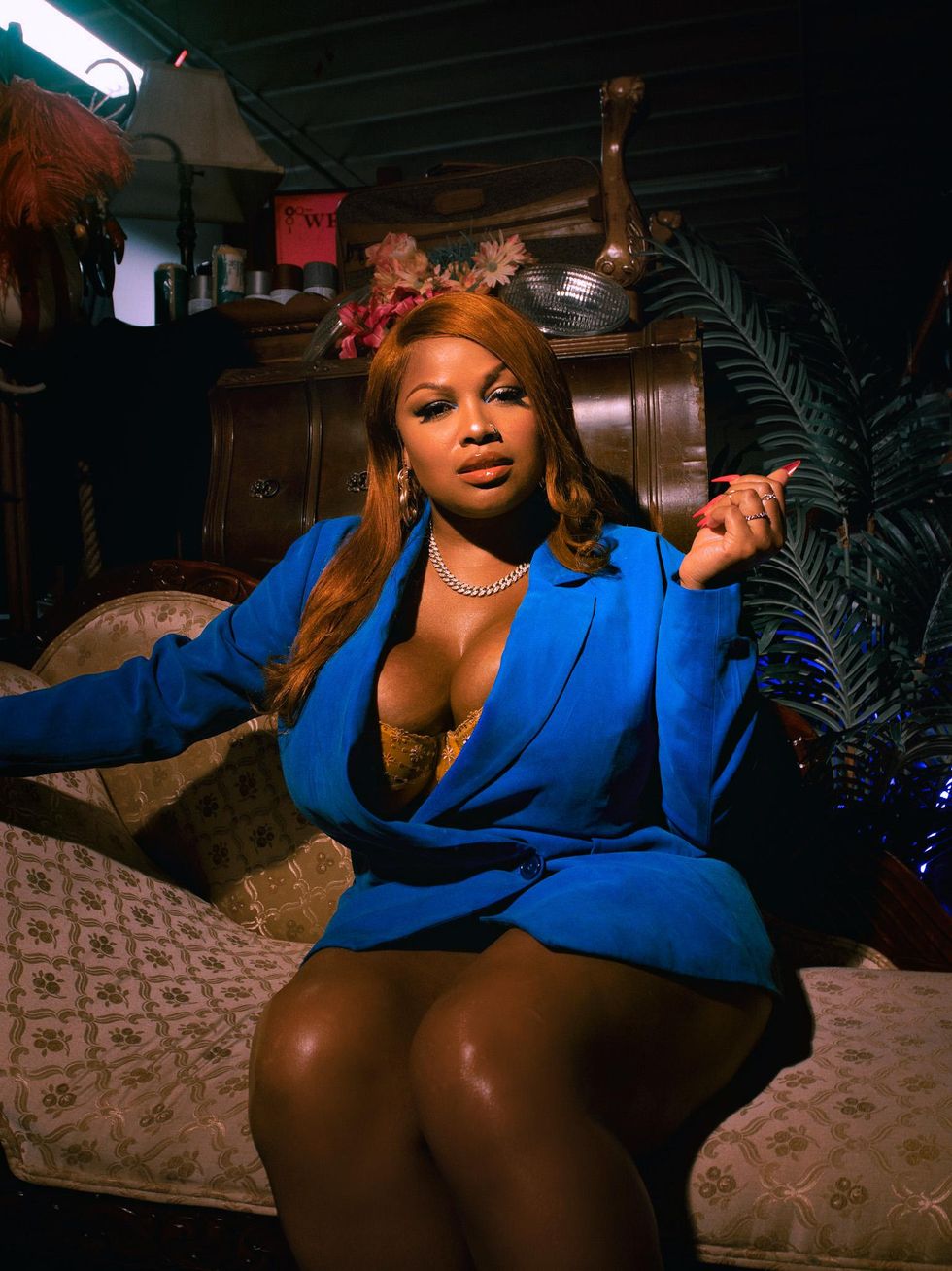
Courtesy of Chasity Hart
"'Weight doesn’t determine my worth. Even if I’m afraid, I will do it. If I can dream it, I can have it. No one is me, and that is my power. I will thrive outside of my comfort zone. I will face resistance with action and faith. I am not what I’ve been through. I am who God made me.'"
Rasheda Crockett, Actress
@RashedaCrockett
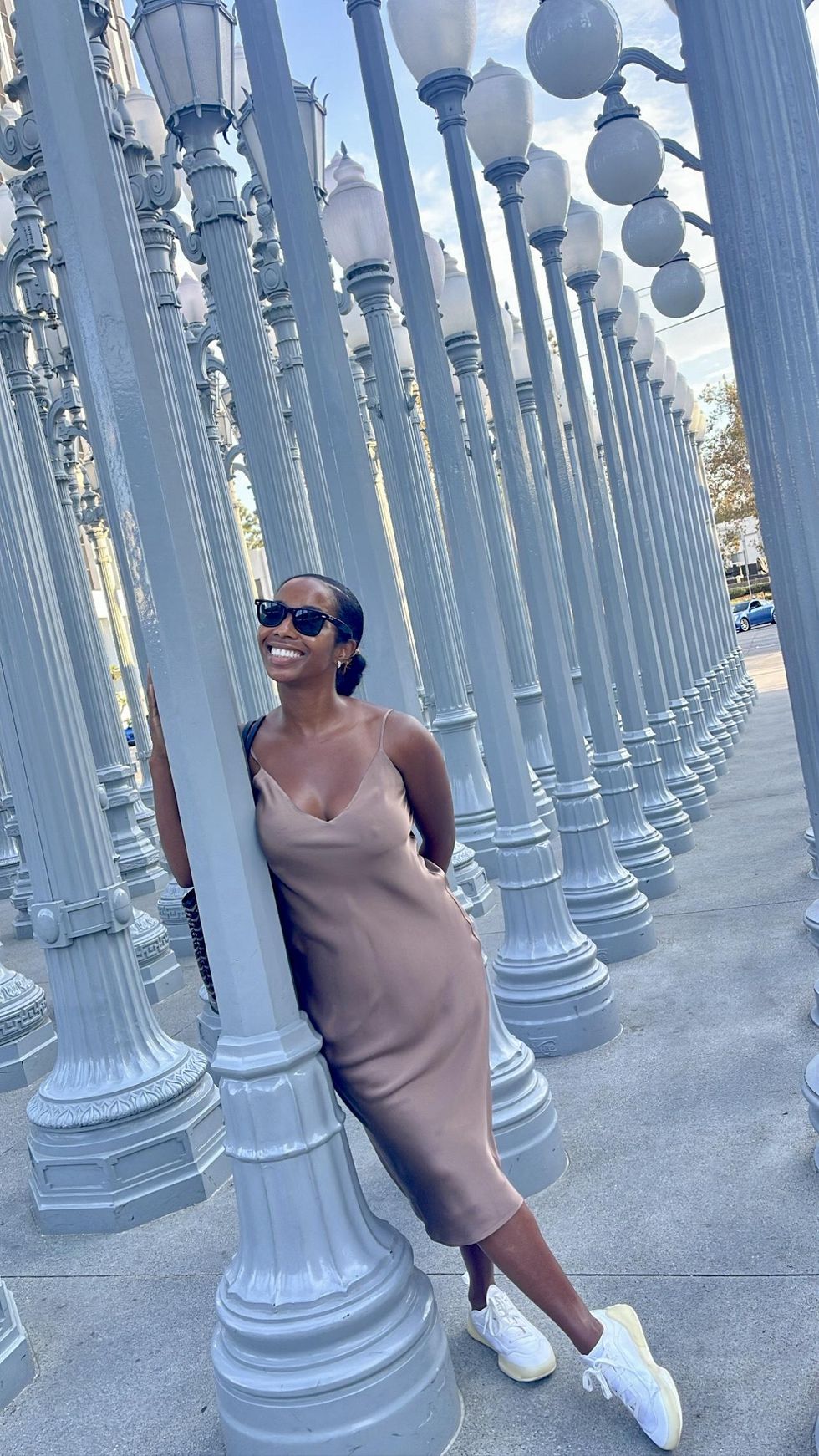
Courtesy of Rasheda Crockett
"'God loves me and in love there’s no fear.' 'All things are possible' was the affirmation that got me through 2022."
Cashmiyr, Mompreneur
@cashthecre8tve
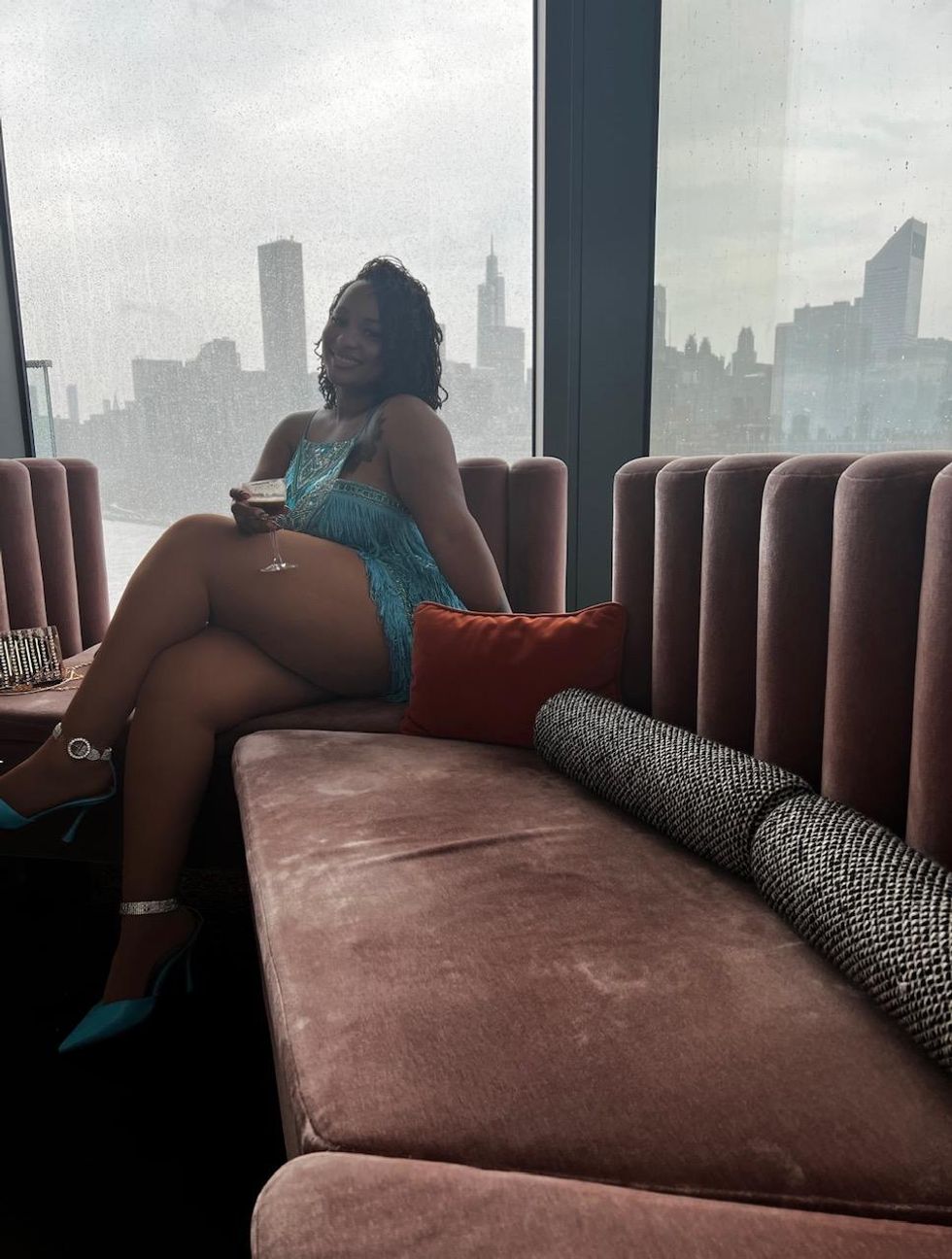
Courtesy of Cashmiyr
"'My intuition is clear and powerful.' 2022 was an extremely transformative year for me. Through the difficulties I’ve faced I came to realize that when I challenged or ignored my inner voice, I struggled the most. Fortunately, with the help of these lessons, I’ve arrived at a place where I don’t dare question the power of my intuition or the validity of my experiences. I know and feel that implementing this affirmation into my life will be incredibly beneficial, and I’m looking forward to meeting the woman I’ll be this time next year because of it. I believe in my strength and in life’s generosity."
Roberta Tabb, Digital Designer and Author
@therobertashow
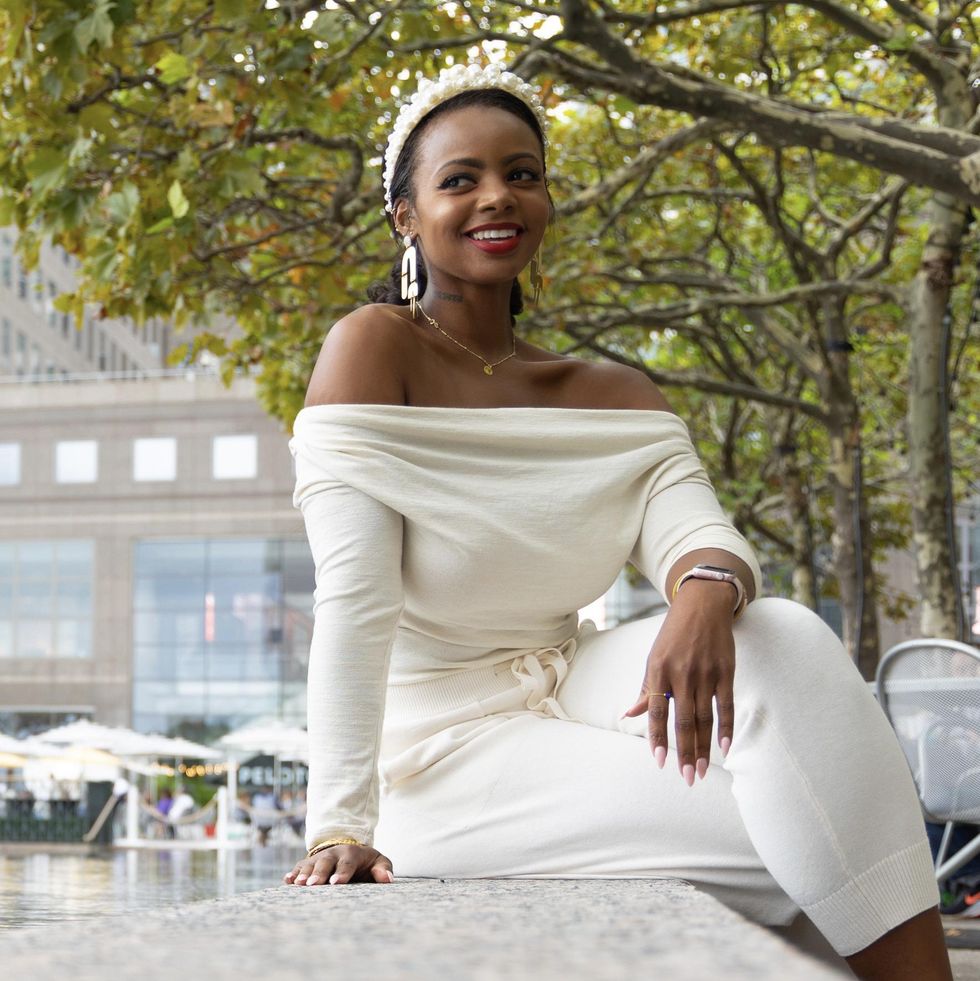
Courtesy of Roberta Tabb
"I am only getting better. If I want it, I will get it. Last year’s mantra was, 'I am wealthy, emotionally, mentally and financially.'”
Kenniqua Howell, Content Creator, Storyteller and Social Strategist
@kenniquamona
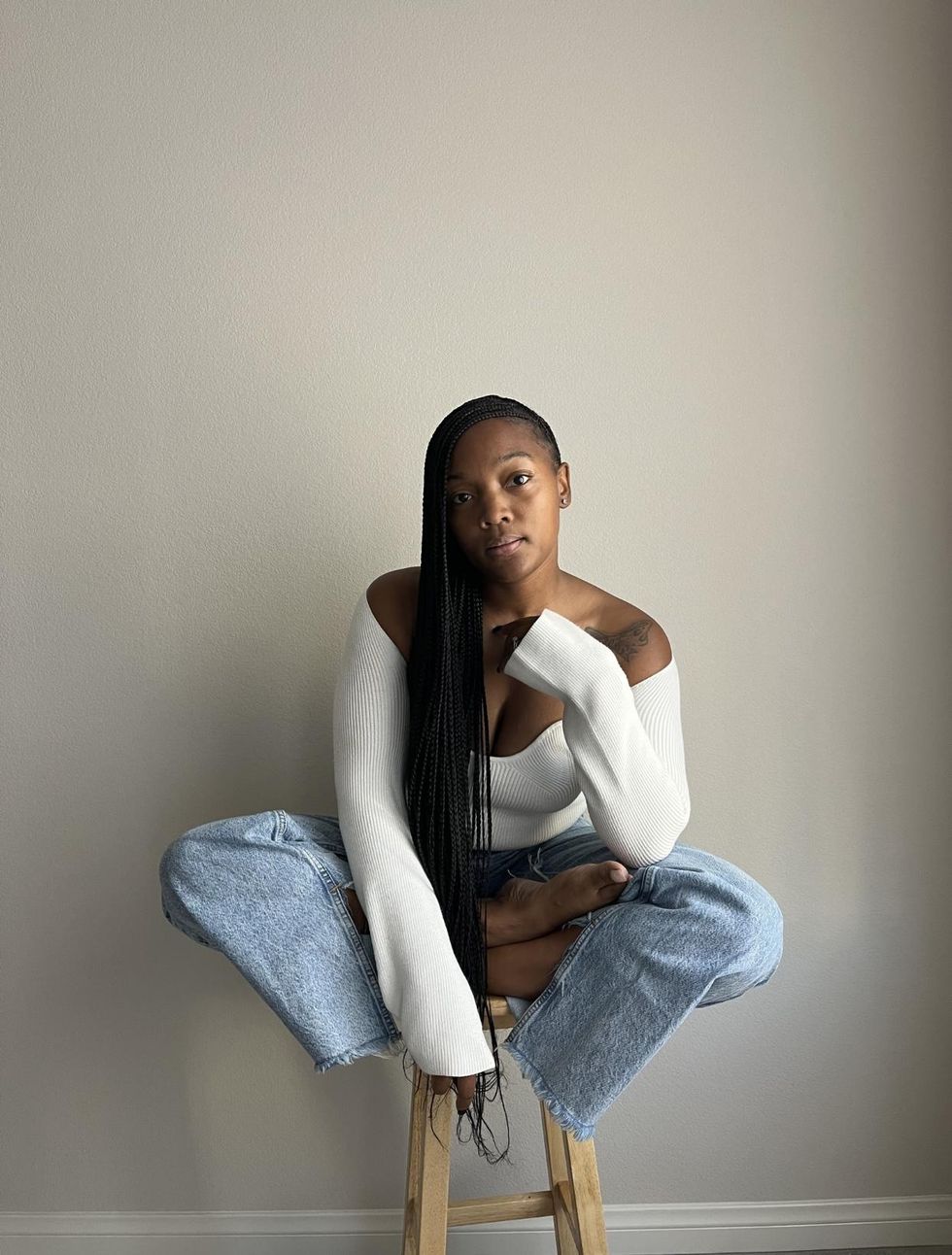
Courtesy of Kenniqua Howell
"'I am worthy of all the good life has to offer, and I will continue to climb higher because there are no limits to what I can achieve.' Why? I’m so quick to question why I receive good things and in 2023, I am stepping into my full potential. I am no longer allowing people, things, jobs, etc. decide what I am capable of. In 2023, I am ready to wow myself and show myself that I am my wildest dreams and can achieve so much more than I think. I am no longer doubting myself, getting everything I deserve, and accepting every single thing… because I am worthy of it all."
Jennifer Francis-Smikle, Digital Media Strategist and Video Production
@MySpicedLife
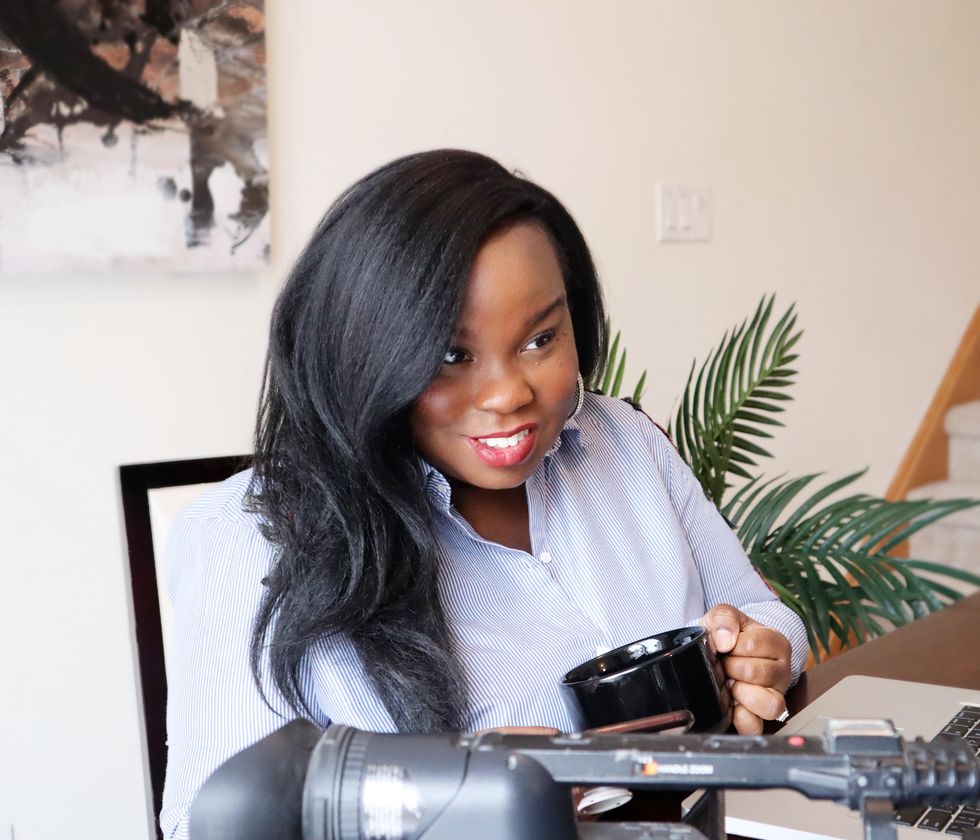
Courtesy of Jennifer Francis-Smikle
"'I choose joy.' I want to do things that make me happy, make me smart and also serve ME. Oftentimes, I noticed that we are doing things to make others happy or doing things that will cause the least amount of turmoil with others. I am on the path to changing that for 2023. I celebrate all wins, big and small."
Daphine Bush, Influencer
@Simplydaph
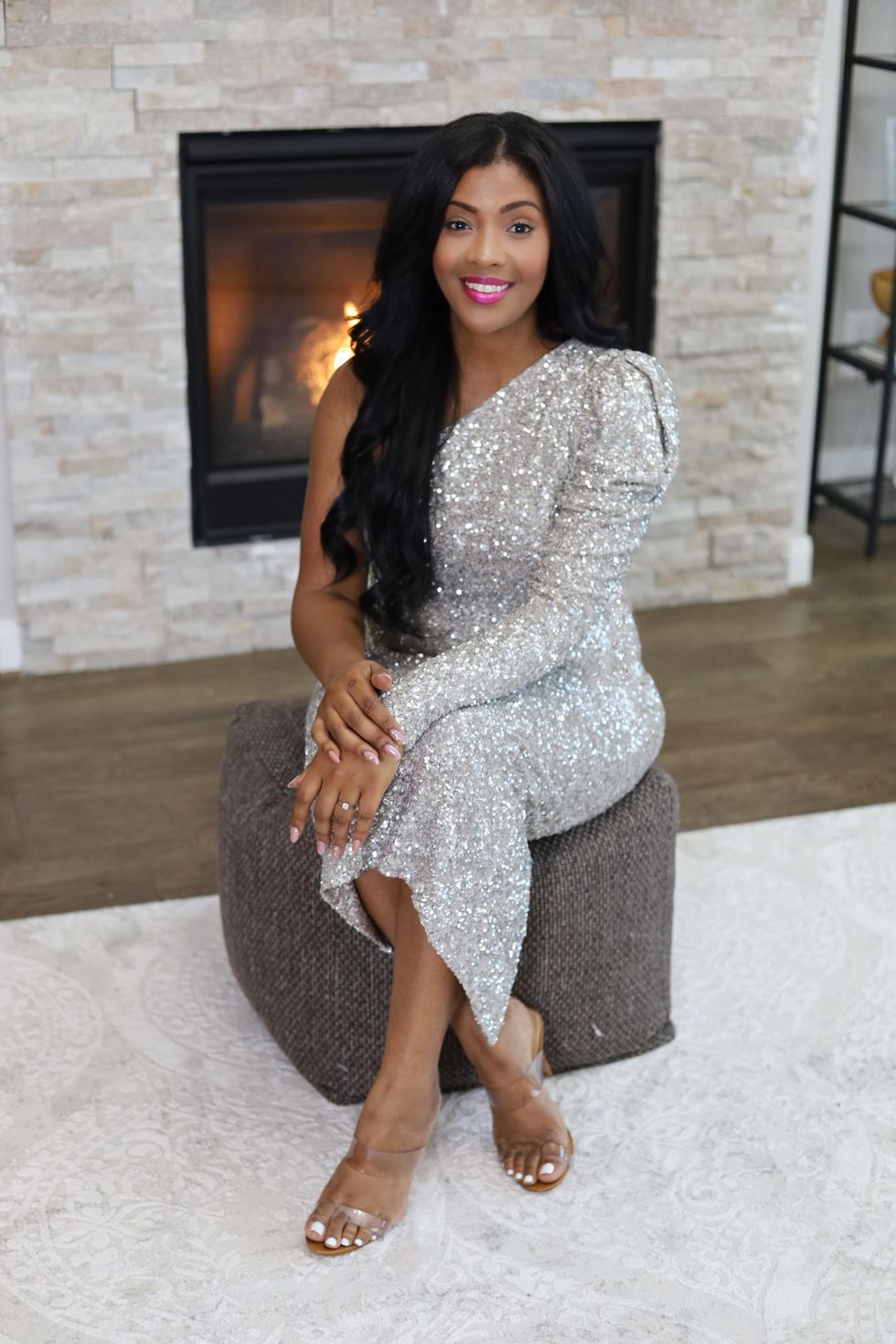
Courtesy of Daphine Bush
"'I have the nature of love. All that I encounter will flourish in love.' This is my mantra this upcoming year because [the] God I love can and will empower us to lead our lives with love. We can spread love, walk in love, and abide in love despite what we experience and this new year, I’m always determined to love others and myself with the love of God. Last year's affirmation was, 'Be intentional.' I was determined to be intentional in all things. I was focused on my family, on my health, and on my relationship with God."
Shanika Graham-White, Content Creator and Cookbook Author
@orchidsnsweettea_
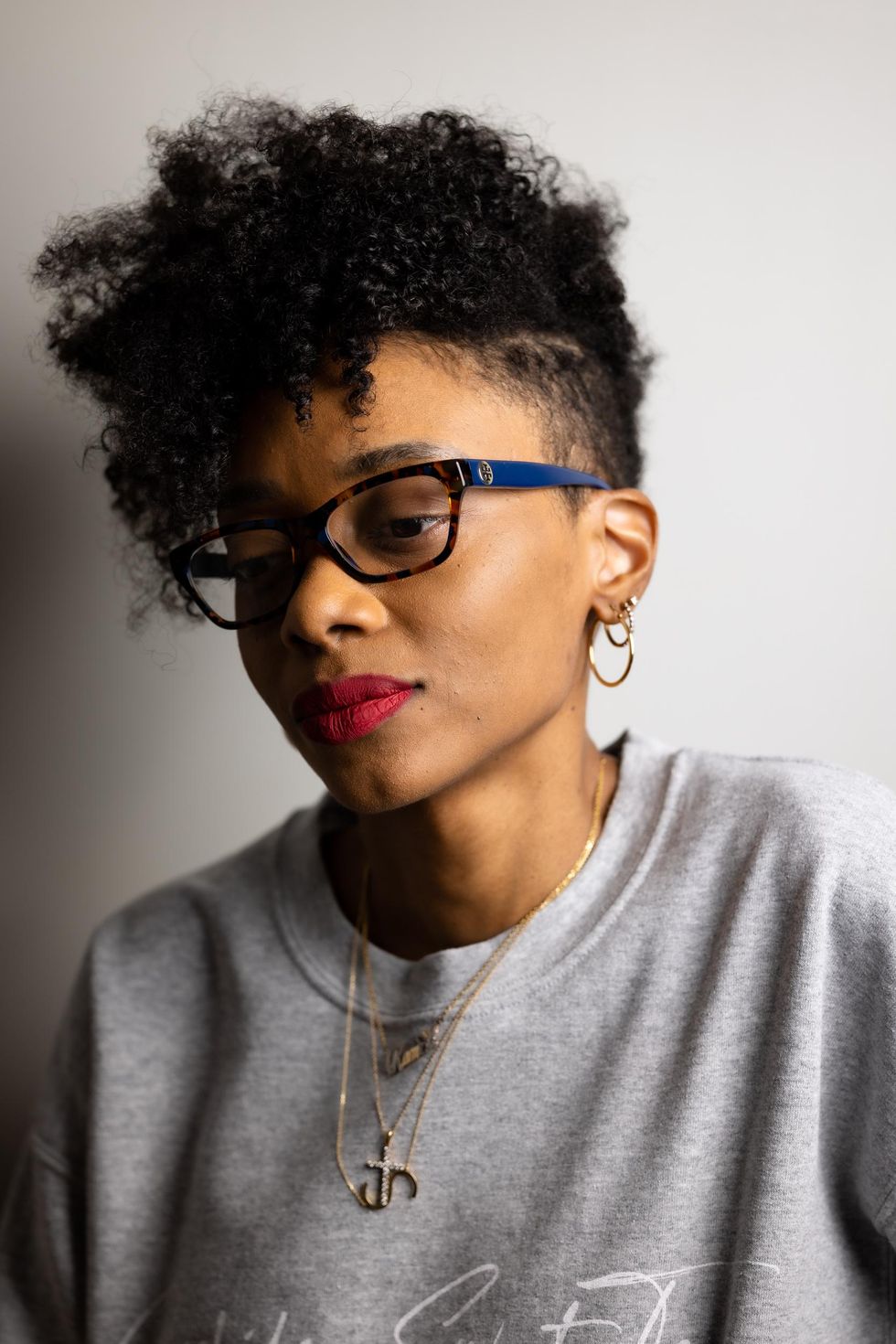
Courtesy of Shanika Graham-White
"'My year of restoration is unfolding. Every seed that was planted shall harvest in every form of my life.' This is what I'll be speaking over 2023 because it reminds me that my sowing in faith, perseverance, and patience will all reap something plentiful beyond what I could ask or think. 2022’s mantra was, 'Just keep going. Persevere, be consistent, and remain focused.'"
Bethany Everett-Ratcliffe, Content Creator
@twentysomethingplus
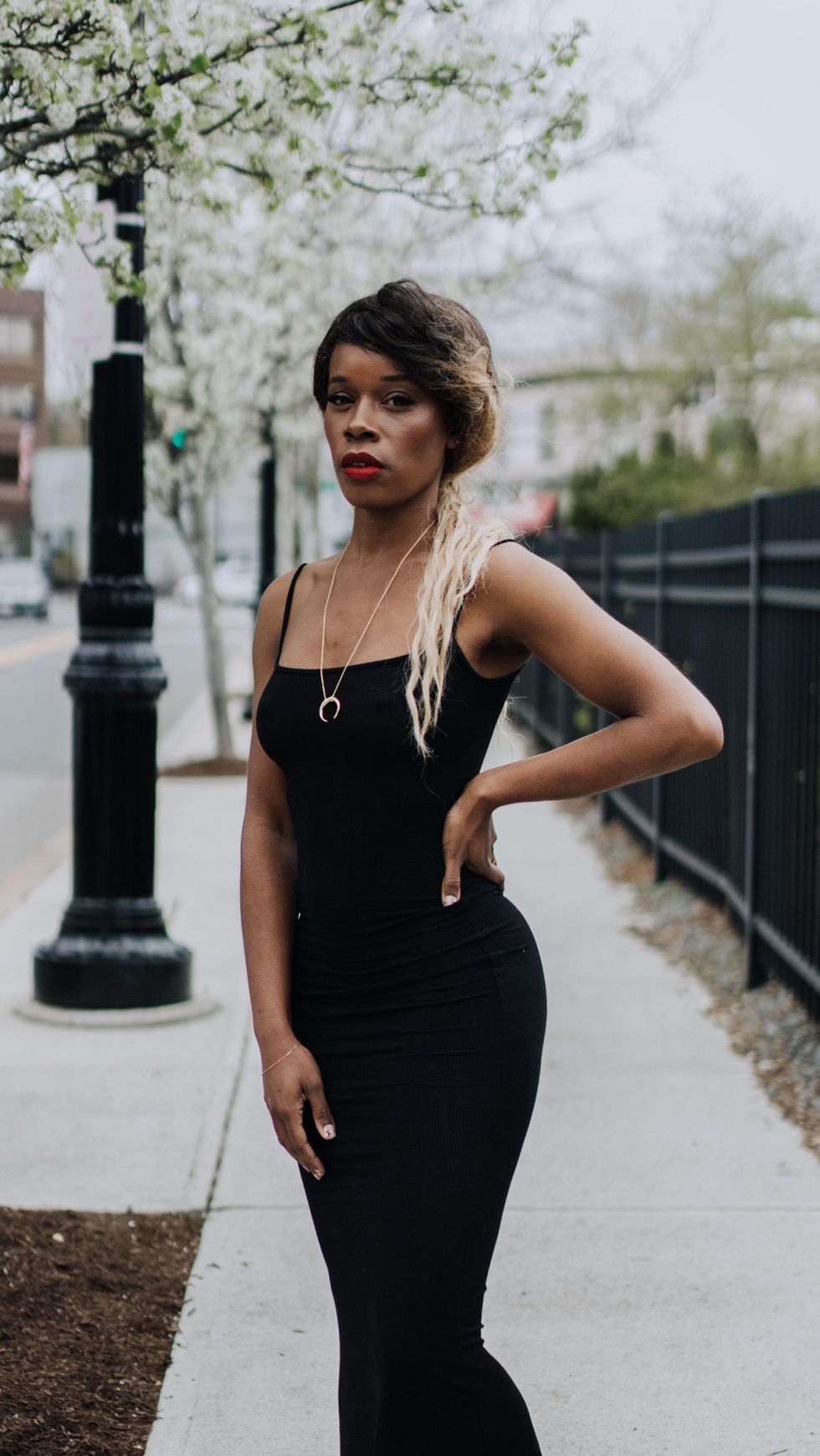
Courtesy of Bethany Everett-Ratcliffe
"I am worthy of all that comes my way. I don’t want to doubt any of my blessings. What I’ve hoped and prayed for is rightfully mine. Show me how good it can get."
Abigail Ogun, Digital Marketer and Travel Creator
@ladiestakenotes
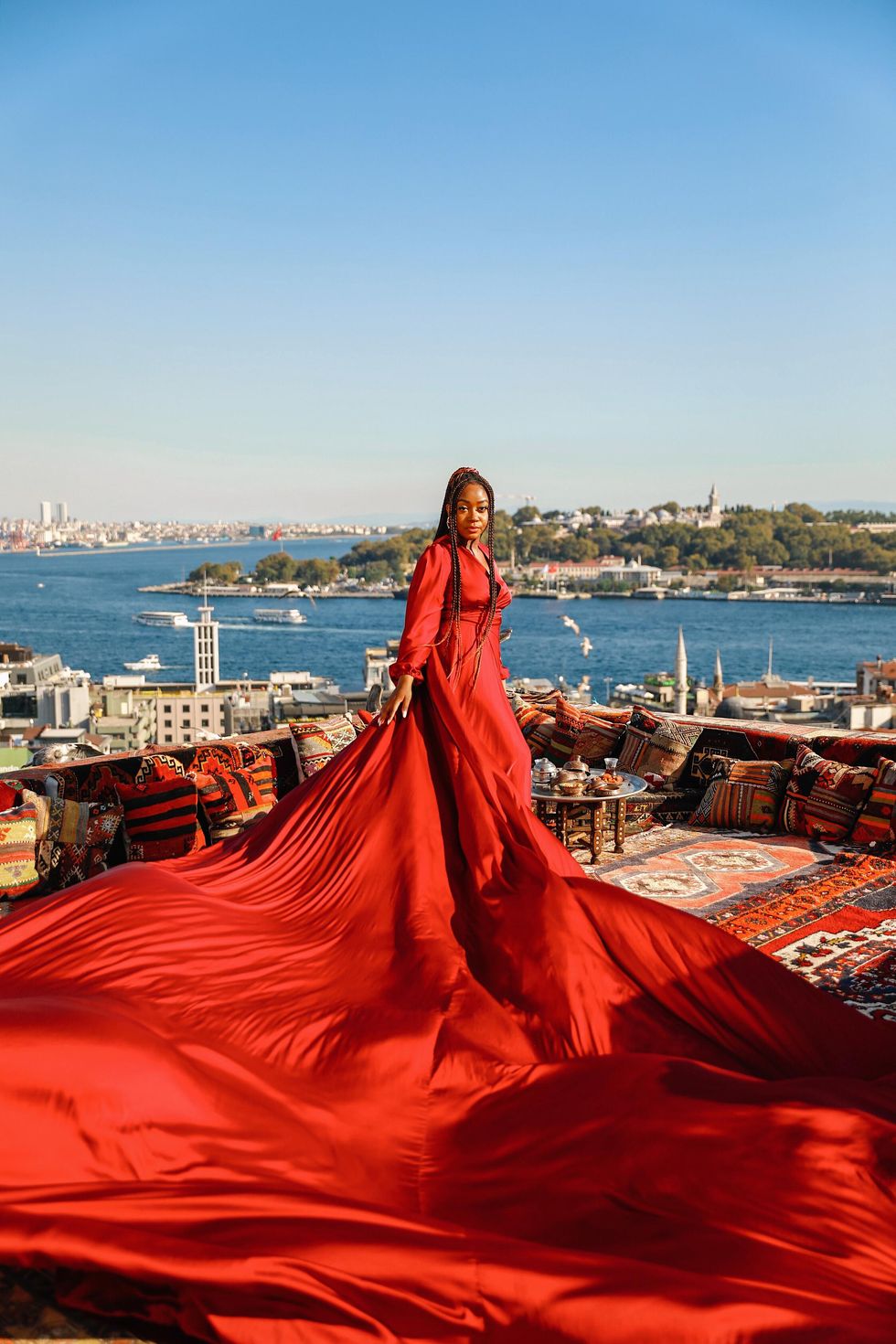
Courtesy of Abigail Ogun
"2023 is a year of intentional growth and execution. I say this because I've spent a lot of time learning more about the content creator industry and how to turn it into a profitable business, as well as testing different methods to see what works for me and my audience. In 2023, I'm excited to jump into the deep end, implement everything I've learned and grow into my goals. I will take life as it comes and see the lessons in everything."
Marie Zoumanigui, Actress and Content Creator
@PetiteMarieNyc
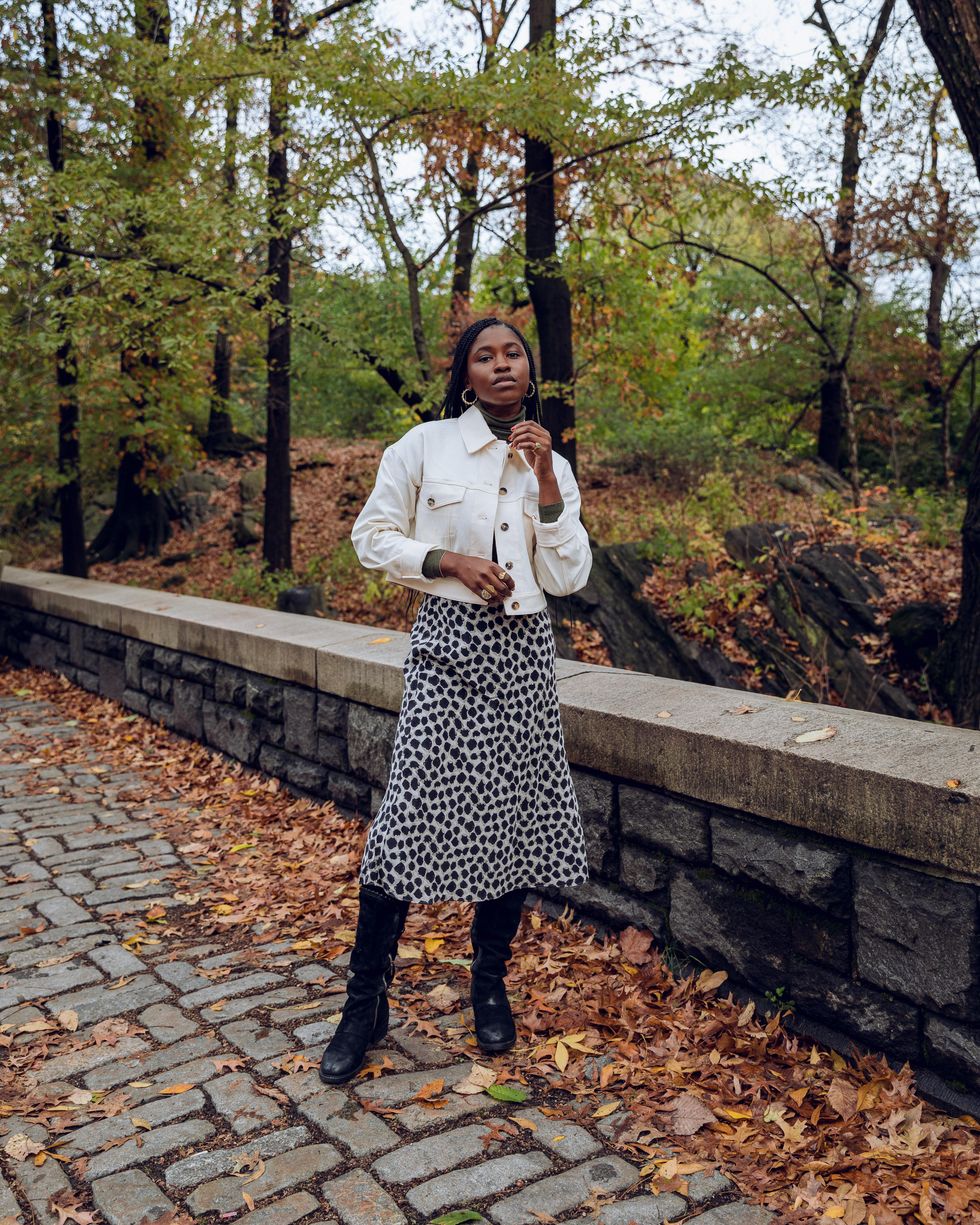
Courtesy of Marie Zoumanigui
"'My thoughts become my reality.' I did a lot of trusting my abilities in 2022, it’s time for me to believe those abilities will get me to where I want to be as long as I keep working on them and putting the work in. 'I trust in my abilities' helped me get through 2022."
Tanisha Cherry, Influencer and Content Creator
@tanisha.cherry
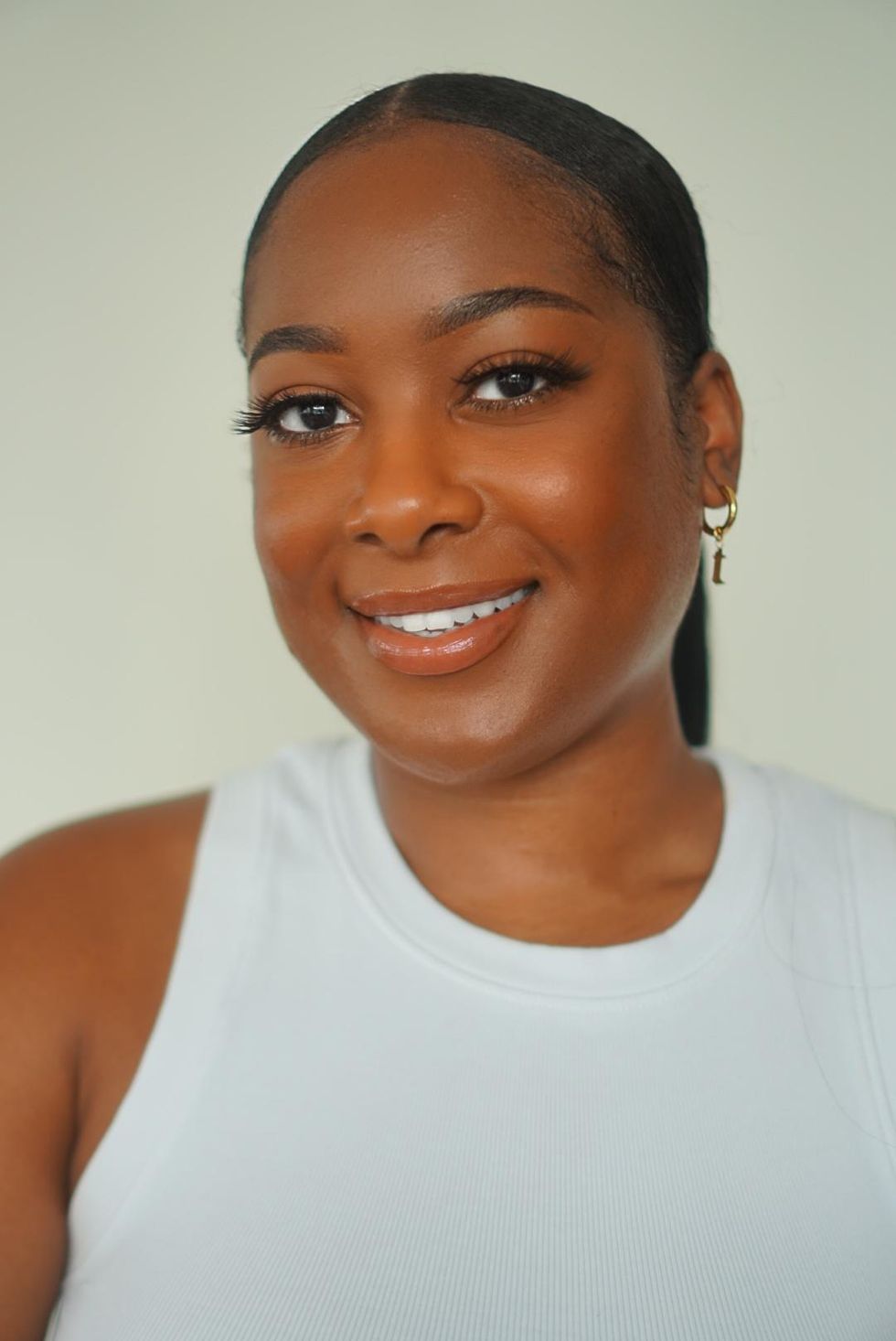
Courtesy of Tanisha Cherry
"'My ambition and drive for success are balanced, healthy and in alignment with my highest good.' I'm dedicating 2023 to being locked into accomplishing the goals that will get me to that next level professionally. But at the same time, I am going to do it by remaining true to who I am and trusting my intuition along the way. Around the middle of 2022, I found myself being sad about not showing up for myself the way I need to and not having a support system to lean into. During these times, I had to remind myself that although I am feeling this, I am going to be okay."
Devana Turner, Technical Recruiter and Content Creator
@devanaturner
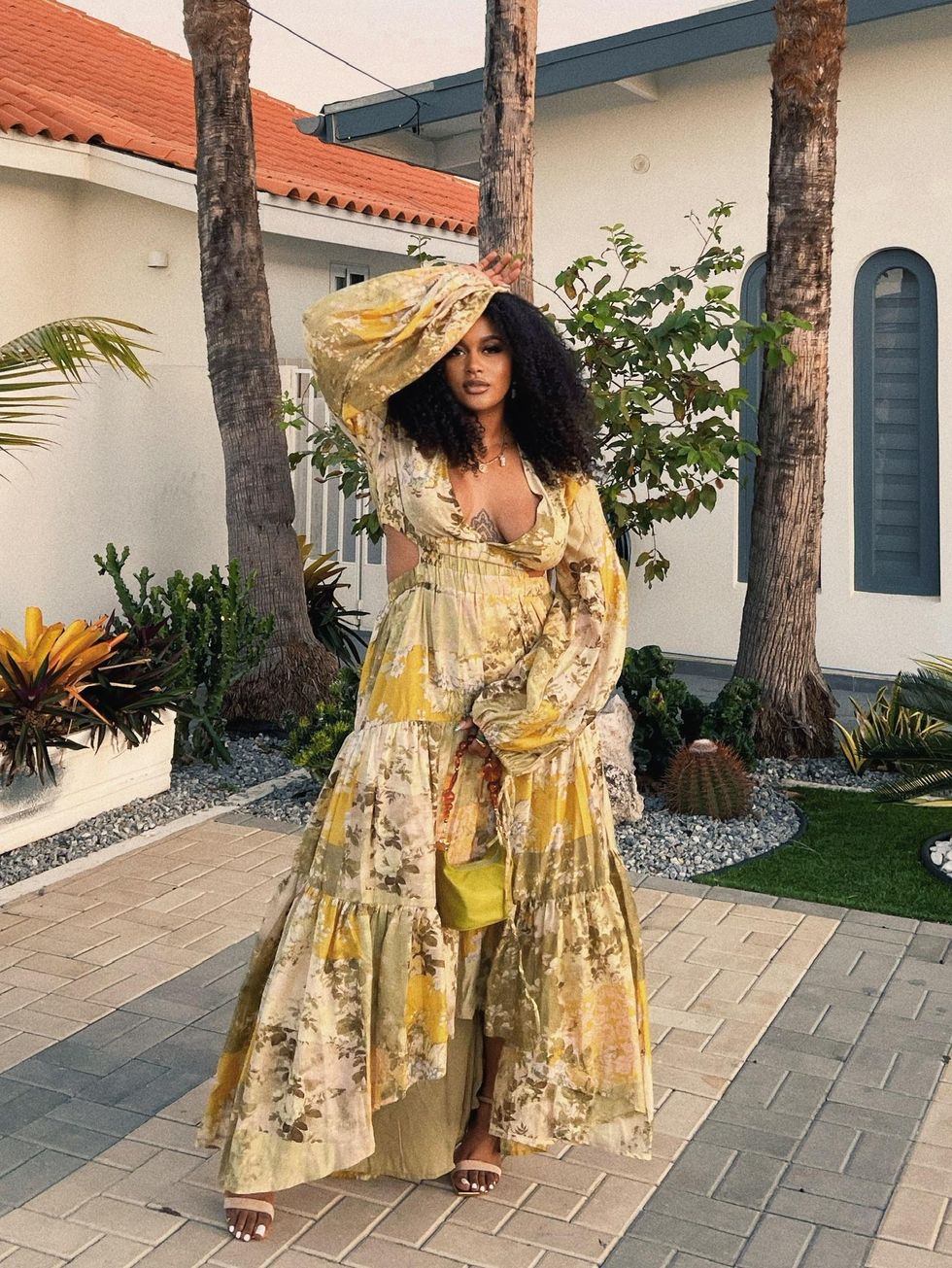
Courtesy of Devana Turner
"Nothing is more important than my mental and physical health. I will say no and say no often. No matter what your intentions are, take accountability for the impact."
Anita Aloys, Digital Content Creator
@auneetuh
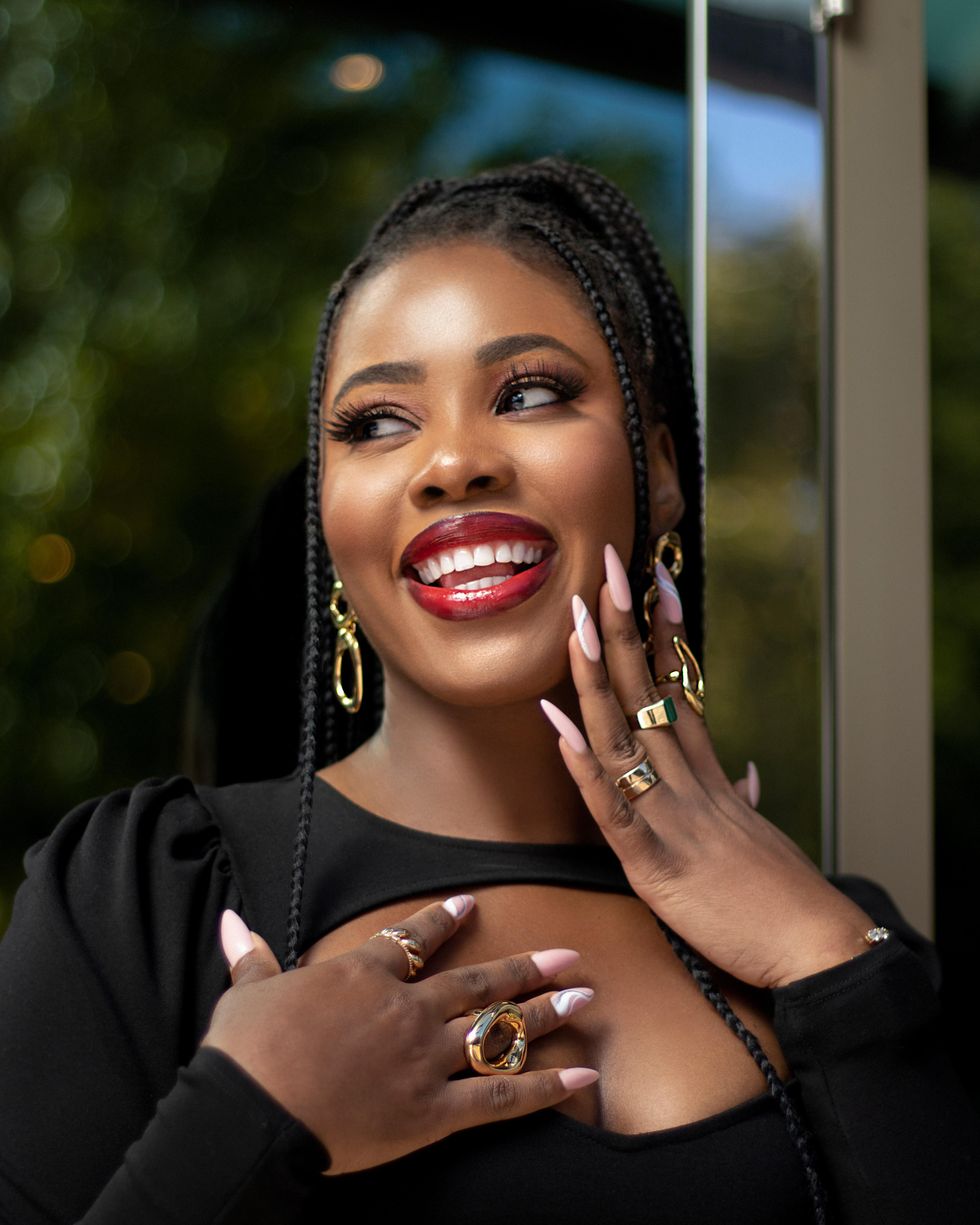
Courtesy of Anita Aloys
"'I can accomplish everything I set out to achieve because fear is not a trait of a bad bitch.' This affirmation is so important to me because my goals for 2023 are huge and a little scary but I am determined to face them fearlessly as I'd love 2023 to be my best year yet! In 2022, I affirmed, 'I am receiving everything I deserve and the universe is aligning for my good!'"
Melissa Chanel Carnegie, Entrepreneur and Content Creator
@melissachanel
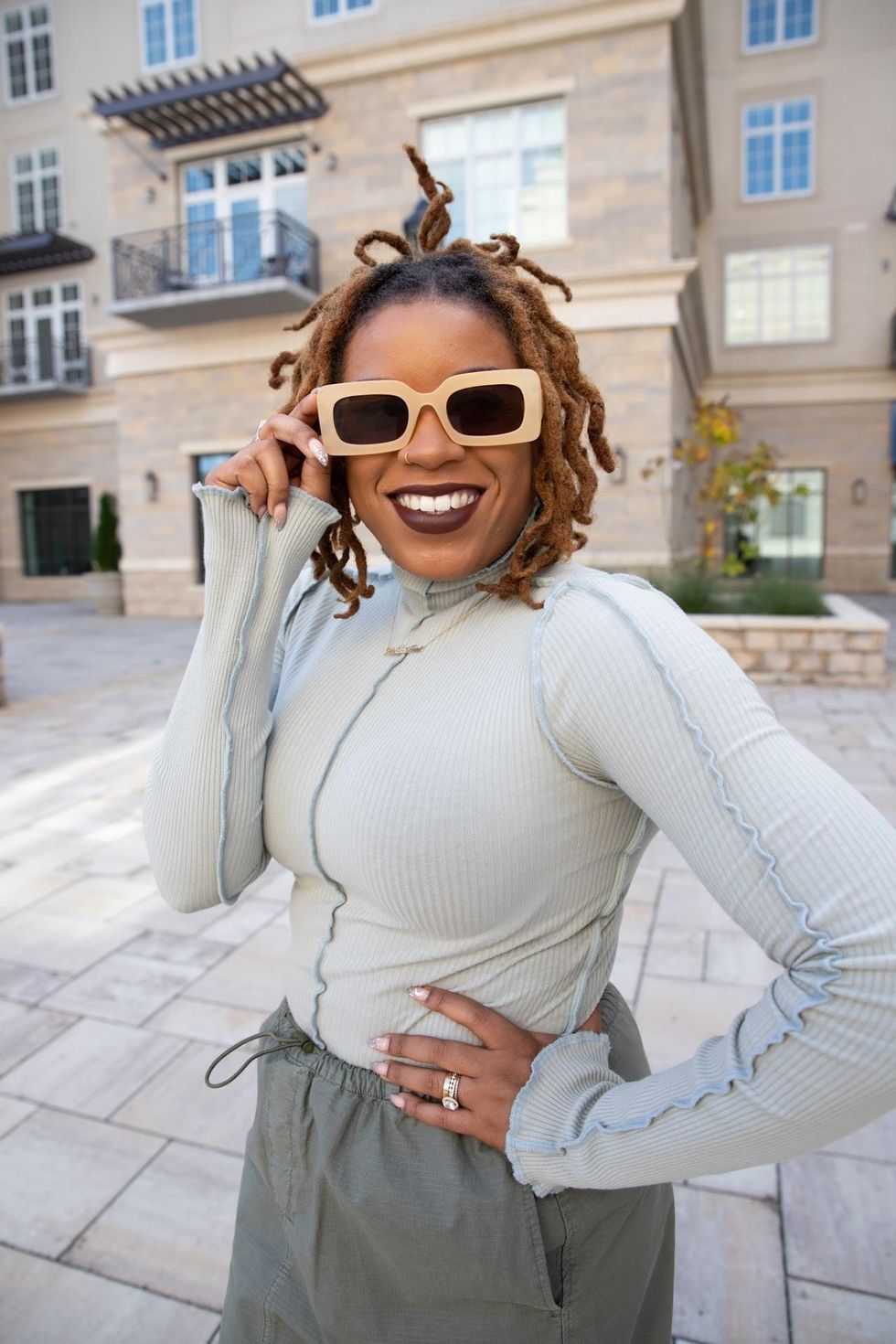
Courtesy of Melissa Chanel
"'I’m only going to get better!' I saved an Issa Rae TikTok this summer and it has stuck with me! [This] a reminder of where I’ve been and if I continue being my best self, I’m only going to get better! 2022 taught me that asking for help is a sign of self-respect and self-awareness. Asking for help has always been hard for me! This year I was able to practice and understand that asking for help isn’t a sign of weakness. This affirmation helped me with that!"
Klarke Foreman, Model, Graphic Designer and Business Owner
@kweenklarke
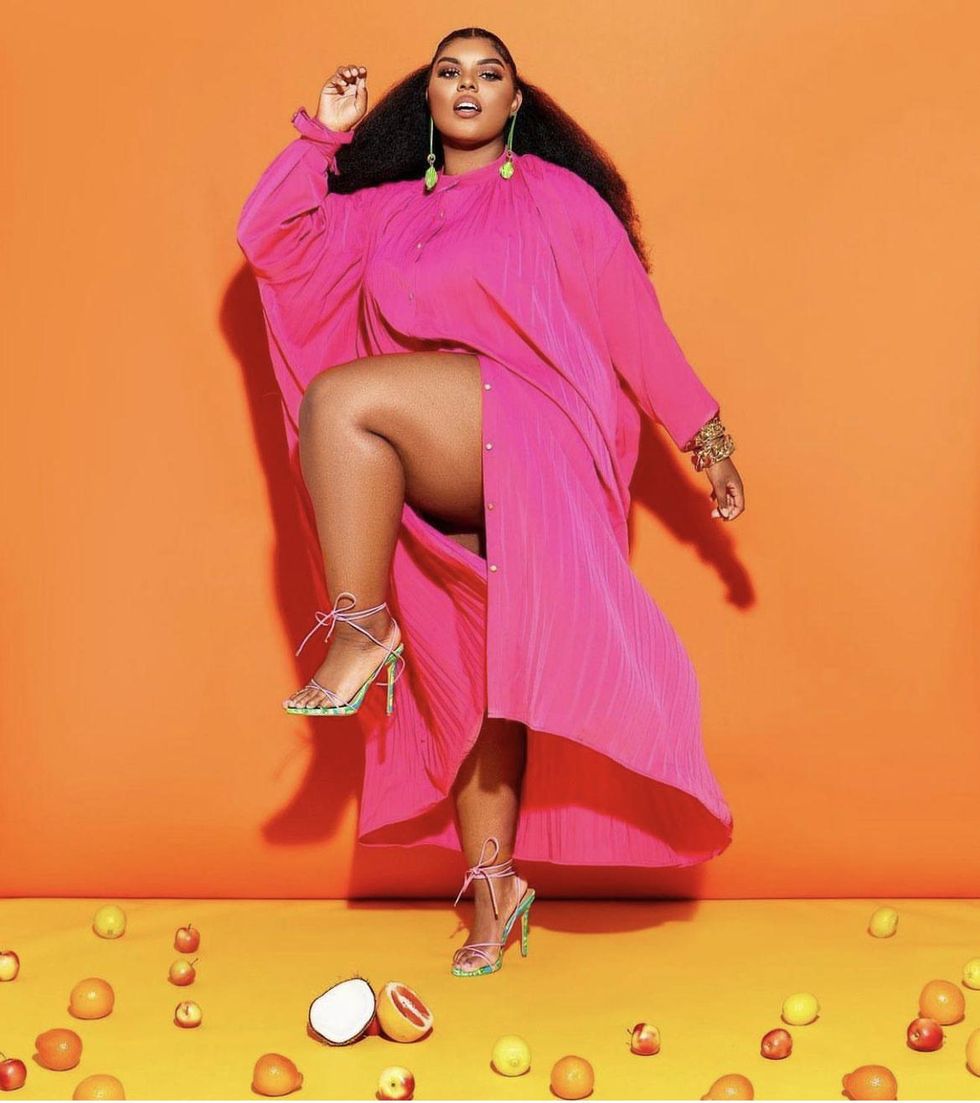
Courtesy of Klarke Foreman
"'I can do hard things.' Adulting, pursuing a dream, nurturing relationships, and establishing healthier habits internally and externally are all challenging (and that's just to name a few). But what's even harder is staying the same. I am choosing my hard, especially if it's for the betterment of myself. The affirmation that got me through 2022 was 'I am conquering my fears and becoming stronger each day.'"
Let’s make things inbox official! Sign up for the xoNecole newsletter for daily love, wellness, career, and exclusive content delivered straight to your inbox.
Featured image courtesy of Marie Zoumanigui
- Returning Home: Why ‘Black Is King’ Was An Affirmation Of My Search For Identity ›
- 10+ Affirmations That We Took Away From The 'Harlem' Cast Girl Chat ›


